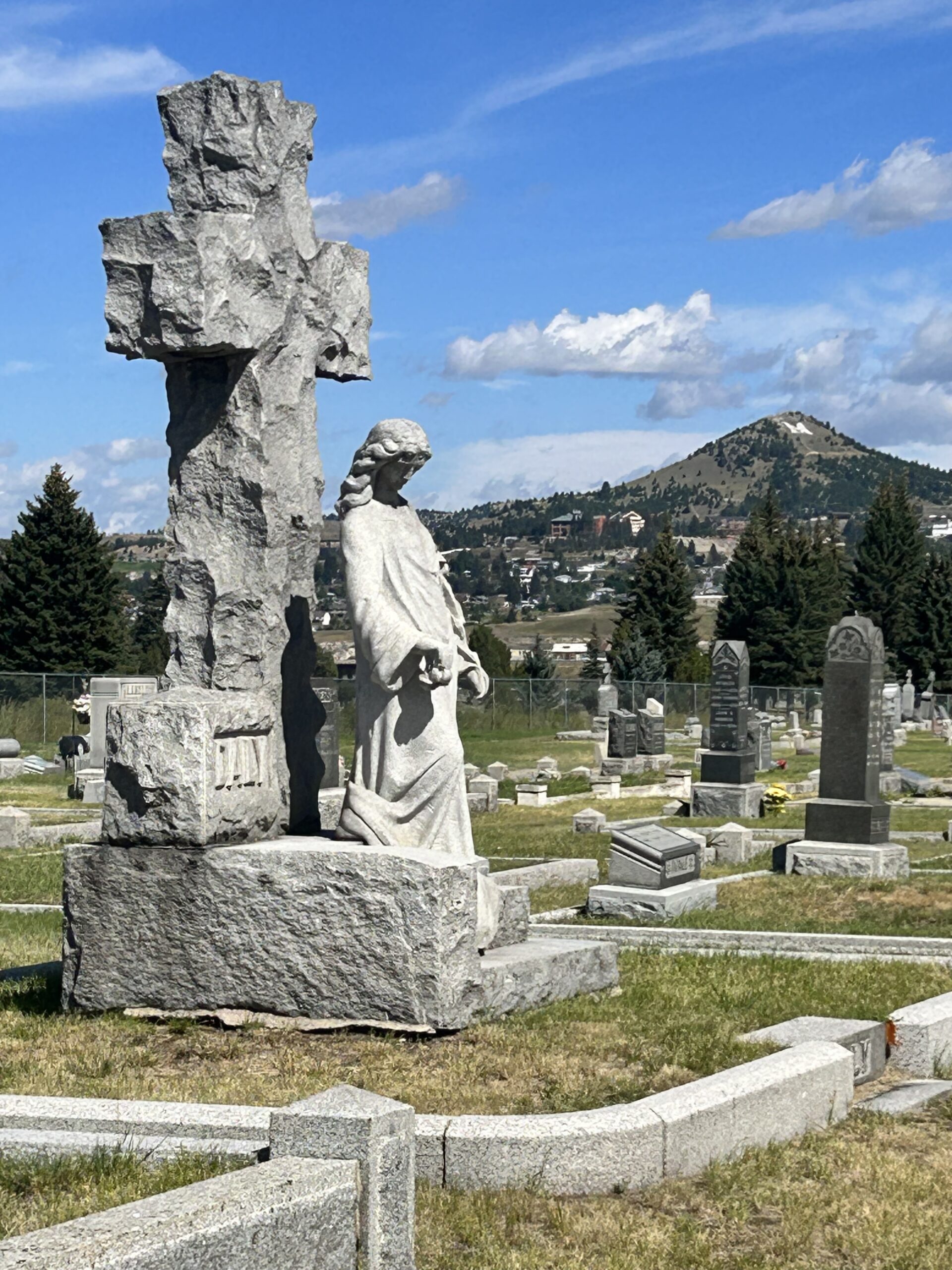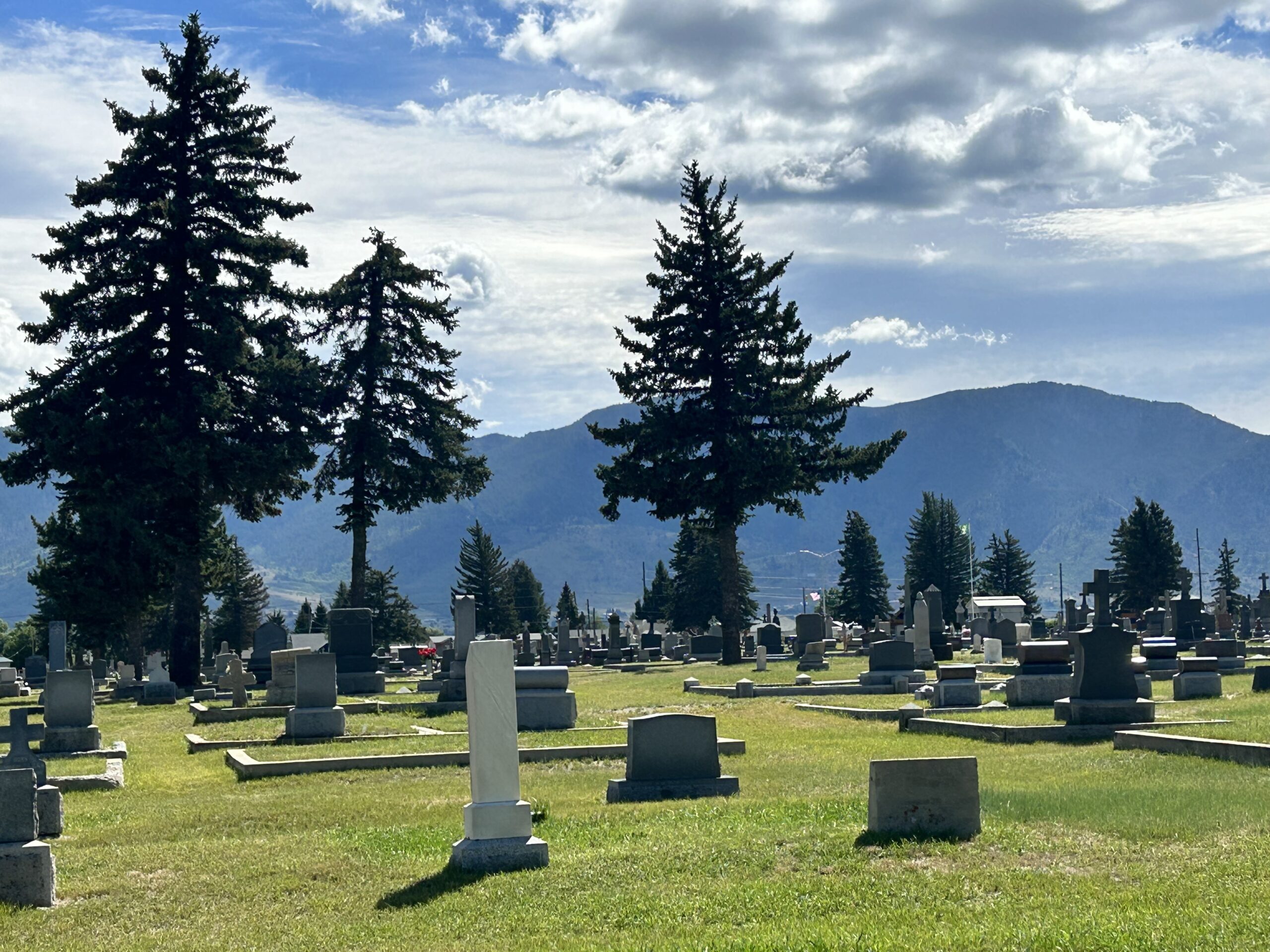Platitudes Are Useless in Dark Days of Mourning

And we need to mourn. One of the most tremendously rewarding and challenging aspects of the priesthood is comforting people in their darkest moments of sorrow. Do not be mistaken, and think that priests are exempt from the pain of those whom they try to comfort, or that we have magical words that somehow ease the pain or bring order to the chaos of grief. Platitudes are useless in dark days of mourning. The deceased person may very well be “in a better place,” but it is oddly of little comfort to say those words. In a powerful witness of human behavior, Christ “does not say, ‘Well, now he is in heaven, everything is well; he is separated from this difficult and tormented life.’ Christ does not say all those things we do in our pathetic and uncomforting attempts to console. In fact he says nothing—he weeps.”
As did Christ, we need to embrace the grief that we feel at the loss of a friend or loved one. We need to honor the bereavement process, because just as God put special people in our lives, so too God has blessed us with the grief that we feel at their loss. Grief is confirmation that the friend or loved one was a person of value, a beloved son, a cherished brother, a caring parent, or a treasured friend. Grief is how we honor a well-lived life. Their death is grief-worthy. In grieving, we do their memory justice, and follow in the example of Jesus, who wept at the grave of his friend Lazarus. Like martyrs of the ancient church, like Lazarus in the New Testament, that they departed from this world makes their death particularly galling for those of us left behind to wonder how we are going to fill the space that they once occupied. The mystery of a future without them is often daunting, as is the mystery of death itself.
As a priest and monk of the Orthodox Church, I am comfortable with this mystery, as all Christians should be. Death can be a mystery precisely because the triumph over death is not a mystery. As the Orthodox theologian Alexander Schmemann wrote, “in essence, Christianity is not concerned with coming to terms with death, but rather with the victory over it.” In the light of everlasting life, in the name of Jesus Christ, the dreadful threat and dark mystery that is death is transformed into a happy and victorious event for the believer, and “Death is swallowed up in victory.” (1 Cor. 15:54)
So mourning is an ancient ritual, one in which Jesus participated, and those before Him. For all of us, all people, death is a common element of humanity, the common trait that we share, and the common enemy of our loved ones. And like grief, victory over death binds people together in a larger, more powerful community, the community that is found in the Christian faith. People accuse Christians of being members of a “death cult,” obsessed with a dying savior and focused on the afterlife to the exclusion of the present; but they are wrong. Christianity does not deny life, Christianity affirms life. Christianity affirms life even in death, because for Christians, death does not remove the relationship that exists. In death, as in life, our loved one is a family member, or a dear friend. In death, as in life, we love and honor them, and death cannot take them from us. Death has taken them, but it has also provided us with the opportunity to live with the hope of one day joining them. And a life with hope is a good life.
So for us, their death is the beginning of the true life that also awaits us beyond the grave, if indeed we have begun to live it here. Christ, “the resurrection and the life,” (John 11:25) transformed death. Christ assumed human flesh, Christ was crucified, resurrected, ascended to heaven and waits for us there, and Christ ushers us into new life both now and after our death. Therefore, even as death exposes our frailty and our grief, death does not reveal our finiteness; instead it reveals our infiniteness, our eternity. To this end, the Christian does not ponder the mystery of death in a way that is paralyzing, negative and apathetic, but in a way that is productive, positive and dynamic.
God, to whom you have entrusted your soul, is a good and perfect God. This God will do what is right with your parents or child, what is just with your brother, and what is honorable with your friend. There is no saying, no claim, no scripture that will give us peace in our loss right now or even calm our troubled souls; but we can find comfort and peace in God who is present with us, and in us and through us as we unite in the intimacy of grief.
With love in Christ,
Abbot Tryphon

Friday August 11, 2023 / July 29, 2023
10th Week after Pentecost. Tone eight.
Fast. By Monastic Charter: Strict Fast (Bread, Vegetables, Fruits)
Martyr Callinicus of Gangra in Asia Minor (250).
New Hieromartyrs Venerables Seraphim (Bogoslovsky) and Theognost (1921).
New Hieromartyr Anatole (1930-1935).
New Hieromartyr Alexis priest, and Martyr Pachomius (1938).
Venerables Constantine and Cosmas, abbots of Kosinsk (Pskov) (13th c.).
Martyr Daniel of Cherkassk (1776).
Virgin-martyr Seraphima (Serapia) of Antioch (2nd c.).
Martyr Theodota and her three sons, in Bithynia (304).
St. Lupus the Confessor, bishop of Troyes (479).
Martyr Michael (9th c.).
Martyr Eustathius of Mtskheta in Georgia (589) (Georgia).
St. Constantine, patriarch of Constantinople (676).
The Nativity of St. Nicholas the Wonderworker from Myra in Lycia (4th c.)
Venerable Romanus, abbot of Kirzhach (1392), disciple of St. Sergius of Radonezh.
Translation of Velikoretsky Icon of St. Nicholas the Wonderworker from Viatka to Moscow (1555).
St. Theodosius the New, emperor (450).
Martyr Mamas in Darii.
St. Olaf, king of Norway (1030) (Celtic & British).
Martyrs Benjamin and Berius of Constantinople (Greek).
Martyr Basiliscus the Elder (Greek).
Hieromartyr Bessarion of Smolyan, Bulgaria (1670).
The Scripture Readings
2 Corinthians 1:12-20
Paul’s Sincerity
12 For our boasting is this: the testimony of our conscience that we conducted ourselves in the world in simplicity and godly sincerity, not with fleshly wisdom but by the grace of God, and more abundantly toward you. 13 For we are not writing any other things to you than what you read or understand. Now I trust you will understand, even to the end 14 (as also you have understood us in part), that we are your boast as you also are ours, in the day of the Lord Jesus.
Sparing the Church
15 And in this confidence I intended to come to you before, that you might have a second benefit— 16 to pass by way of you to Macedonia, to come again from Macedonia to you, and be helped by you on my way to Judea. 17 Therefore, when I was planning this, did I do it lightly? Or the things I plan, do I plan according to the flesh, that with me there should be Yes, Yes, and No, No? 18 But as God is faithful, our word to you was not Yes and No. 19 For the Son of God, Jesus Christ, who was preached among you by us—by me, Silvanus, and Timothy—was not Yes and No, but in Him was Yes. 20 For all the promises of God in Him are Yes, and in Him Amen, to the glory of God through us.
Matthew 22:23-33
The Sadducees: What About the Resurrection?
23 The same day the Sadducees, who say there is no resurrection, came to Him and asked Him, 24 saying: “Teacher, Moses said that if a man dies, having no children, his brother shall marry his wife and raise up offspring for his brother. 25 Now there were with us seven brothers. The first died after he had married, and having no offspring, left his wife to his brother. 26 Likewise the second also, and the third, even to the seventh. 27 Last of all the woman died also. 28 Therefore, in the resurrection, whose wife of the seven will she be? For they all had her.”
29 Jesus answered and said to them, “You are mistaken, not knowing the Scriptures nor the power of God. 30 For in the resurrection they neither marry nor are given in marriage, but are like angels of God in heaven. 31 But concerning the resurrection of the dead, have you not read what was spoken to you by God, saying, 32 ‘I am the God of Abraham, the God of Isaac, and the God of Jacob’? God is not the God of the dead, but of the living.” 33 And when the multitudes heard this, they were astonished at His teaching.
